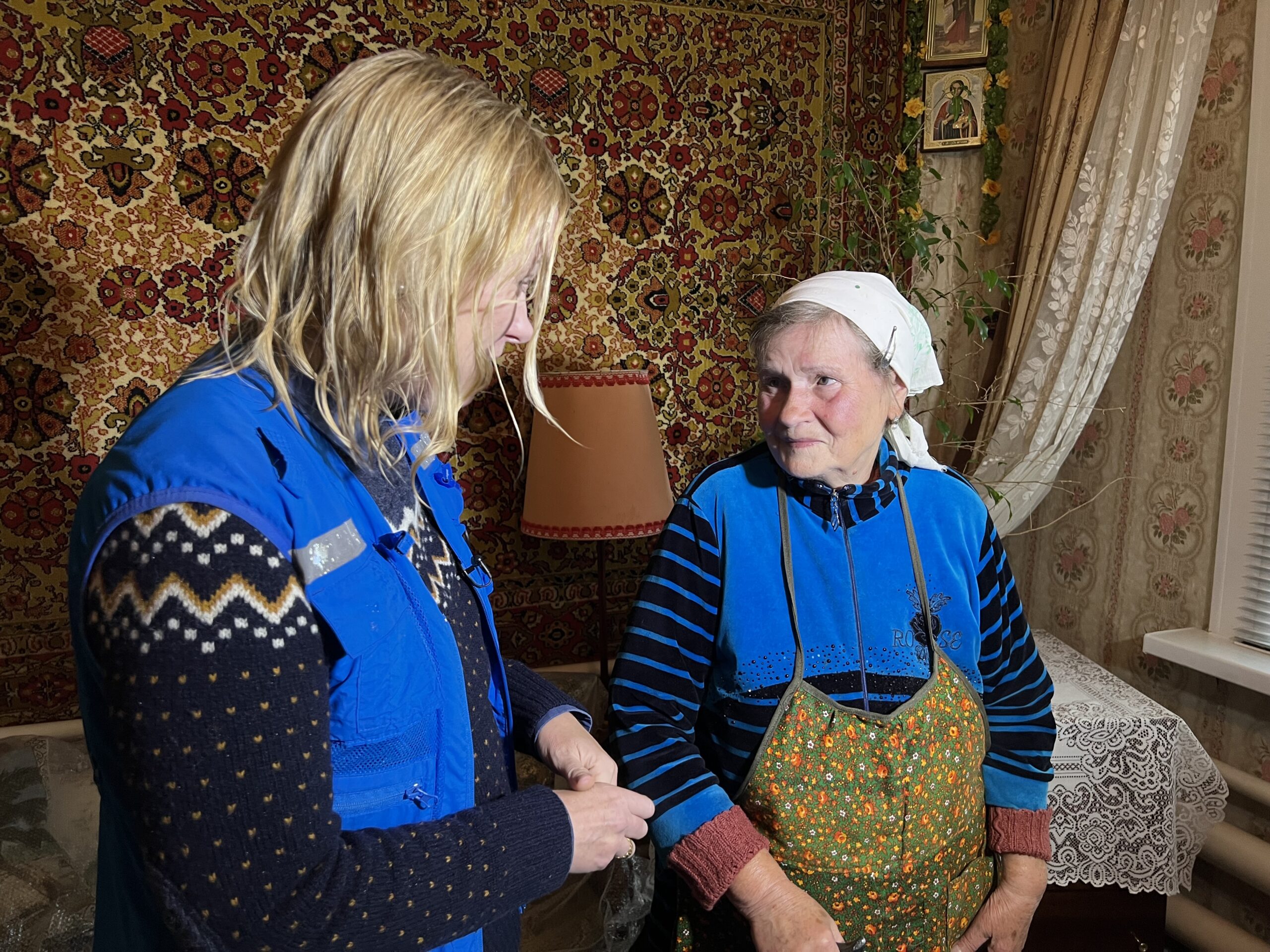1,000 days of full-scale war in Ukraine
Families that have been forced to flee must now try to survive during harsh winters.
© UNHCR/Anna Liminowicz
1,000 days of full-scale war in Ukraine
Families that have been forced to flee must now try to survive during harsh winters. Photo: © UNHCR/Anna Liminowicz
The war in Ukraine has forced some 6.7 million refugees to flee the country and over 3.6 million more people are internally displaced in Ukraine due to fighting.

Emergency shelter
to provide safety for those fleeing or left with damaged homes

Relief items and emergency payments
for the most vulnerable individuals, including winter relief and blankets
Community support
to help displaced people access social services and psychological support
What’s happening in Ukraine?
After 1,000 days of full-scale war in Ukraine, the needs of civilians are growing amid intense attacks and as another gruelling winter season sets in. The Russian invasion of Ukraine has forced many people to flee their homes. As the war continues, humanitarian needs remain high both in Ukraine and in surrounding countries hosting refugees from Ukraine.
The recent escalation of hostilities has increased the humanitarian needs, with families expected to face the worst winter since the start of the full-scale war in Ukraine due to extremely cold weather and attacks on vital energy infrastructure.
More than 6.4 million refugees from Ukraine have now fled the country to seek safety. In addition, over 3.6 million people are internally displaced within Ukraine’s borders.
Despite the ongoing war, UNHCR is staying and delivering whilst providing relief operations across Ukraine and in neighbouring countries to support fleeing civilians. Urgent needs include shelter, relief items such as blankets, and specialist protection – all of which rely on voluntary donations.
What is winter in Ukraine like?
Millions who have fled the war in Ukraine will be facing their second winter uprooted from their homes or living amid damaged houses and through power outages.
Temperatures can get as low as -25 Celsius in some parts of the country, and UNHCR has warned that the winter months are going to be a matter of life and death for millions of people affected by the ongoing war.
Not all of the damage caused to the energy and heating infrastructure last winter has been repaired and there are concerns that energy infrastructure will be attacked again this winter.
Conditions in many collective sites housing displaced people will be even more precarious in winter temperatures.
How long has UNHCR been in Ukraine?
UNHCR has been working in Ukraine since 1994 and established a country office the following year in 1995, supporting refugees and asylum-seekers, stateless people, and internally displaced and other conflict-affected persons.
How has conflict in recent years led to displacement in Ukraine?
Since the beginning of the conflict in eastern Ukraine and the temporary occupation of Crimea in 2014, UNHCR has provided protection and humanitarian assistance on both sides of the contact line. This includes support for internally displaced people, refugees and stateless people in the country.
The Russian invasion of Ukraine in 2022 forced millions more people in Ukraine to flee their homes. An additional 3.6 million people have been displaced within Ukraine’s borders.
UNHCR and its teams work in both Government controlled and non-Government controlled areas, and in neighbouring countries, delivering humanitarian assistance such as emergency shelter and psychological support to people in need.
What support does UNHCR deliver?
Winter in Ukraine is harsh and early interventions are essential to ensure warm, safe and dignified living conditions for affected people.
Supporting people through the winter is UNHCR’s priority over the coming six months. UNHCR’s winter response aims to reach 900,000 vulnerable, displaced and war-affected people between 1 September 2023 and 29 February 2024.
Throughout the winter months UNHCR staff are working tirelessly to provide urgent aid and humanitarian support to refugees and displaced people to help them survive the harsh conditions.
UNHCR is providing rental support, to help families find warm, safe and dignified accommodation; scaling up shelter repairs, ensuring proper insulation is installed in homes and collective sites to battle freezing temperatures; on the ground distributing heating appliances, generators, winter kits containing items like rapid thermal kits to make shelters warmer, winter clothing; and is providing vital cash assistance for rent and utilities.
Where are refugees from Ukraine fleeing to?
Neighbouring countries such as Poland, Hungary, Moldova, Romania and Slovakia have all accepted refugees from Ukraine and are providing refuge, supported by UNHCR teams. More than 6.4 million refugees from Ukraine have been recorded globally.
How can I learn more about the situation in Ukraine?
To access the latest data and reports on UNHCR’s vital work in Ukraine, please visit the Ukraine Operations portal.
To find out more about UNHCR’s work in Ukraine, please visit UNHCR Ukraine.
The war in Ukraine has resulted in the biggest and fastest growing refugee crisis in Europe since the Second World War.
“Thank you for the support that you provided us with. You are doing great work, it is very important for people here.”
79-year-old Liudmyla was forced to flee her home near Kyiv to Fastiv and stayed there for three months. She returned to a house with a collapsed roof, broken doors & shattered windows. Emergency shelter kits can be quickly deployed to carry out makeshift repairs to houses like Liudmyla’s, ensuring homes are habitable. To support UNHCR’s work, please donate today.
©UNHCR/Victoria Andrievska

“Thank you for the support that you provided us with. You are doing great work, it is very important for people here.”
79-year-old Liudmyla was forced to flee her home near Kyiv to Fastiv and stayed there for three months. She returned to a house with a collapsed roof, broken doors and shattered windows. Emergency shelter kits can be quickly deployed to carry out makeshift repairs to houses like Liudmyla’s, ensuring homes are habitable and the people within them protected from the elements. UNHCR’s work around the world relies on voluntary donations. To support UNHCR’s work, please donate today.
©UNHCR/Victoria Andrievska

